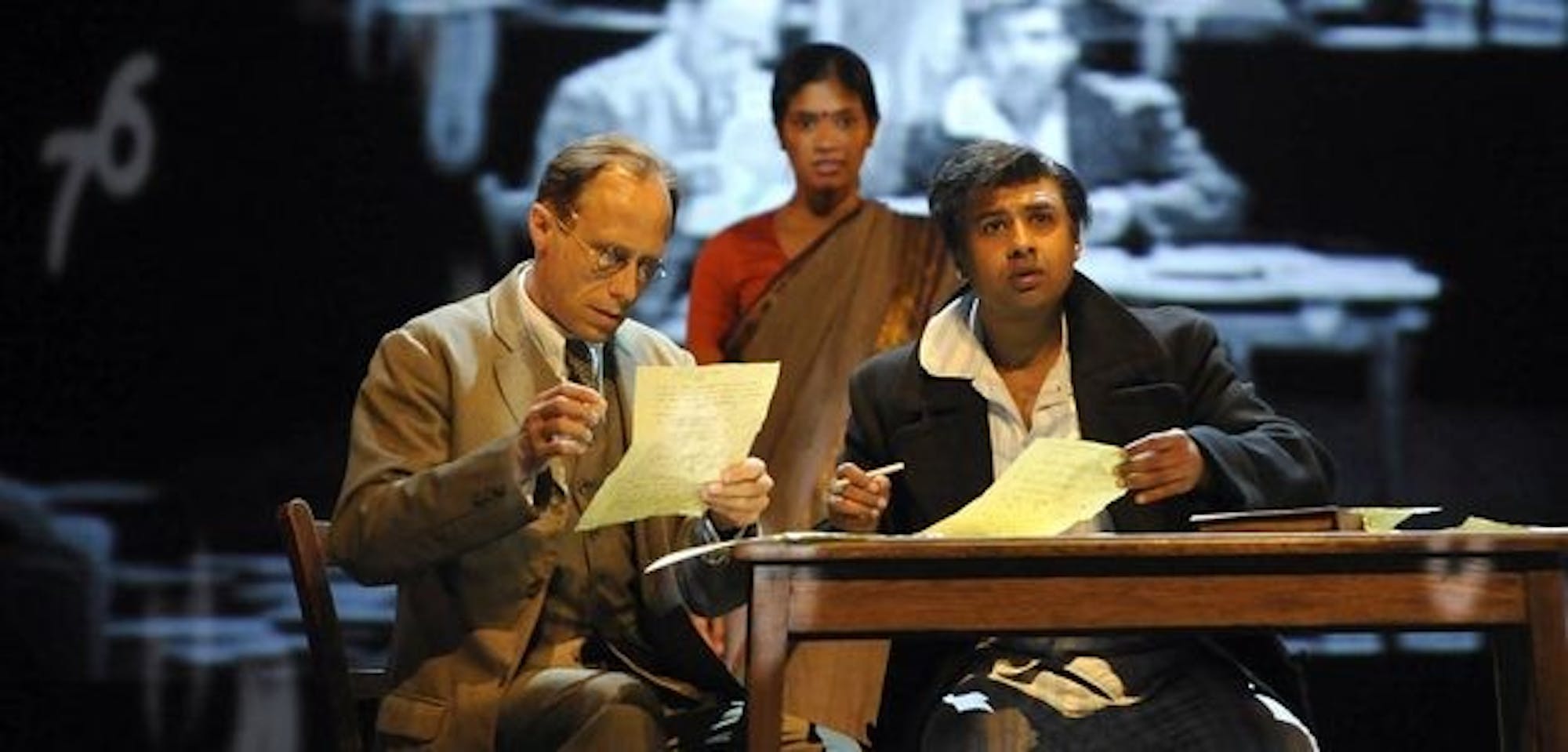"This is a new world for us a performance on stage that is recorded live and then transmitted," Stowe said. "It's not live theater and its not a movie. It's kind of it's own hybrid."
The series began last June with a screening of "Phedre," starring acclaimed actress Helen Mirren. Over the rest of the first season, the series' popularity grew steadily and on Sept. 23, the National Theatre screened an encore performance of "Phedre" as a lead in to the series' second season. This screening marked the first to be broadcast at the Hop.
The series will continue its second season throughout the fall with "A Disappearing Number" this Thursday, "Hamlet" on Dec. 9 and several more plays including "FELA!," "King Lear," "Frankenstein" and "The Cherry Orchard" throughout the Winter and Spring terms. Thursday night's play, "Disappearing Number," connects two mathematicians one a fellow at Cambridge University and the other a poor, brilliant Brahman in India. Their narrative is interwoven with the love story of an Indian-American businessman and his lecture partner 100 years later.
The technology behind the broadcasts is relatively simple the live performances are recorded in high-definition and transmitted via satellite, BY Experience HD, to hundreds of screens around the world. The shows recorded are matinees, allowing them to be played at a time more convenient for local audiences.
Despite the fact that the plays are recorded and transmitted to audiences, the general consensus is that the atmosphere and experience gained from watching live recordings remains the same as watching the original production on stage, according to Stowe.
"The intensity and immediacy of the play is still communicated on the screen [even though] the experience of the play is through someone else's decision making," she said.
In addition to providing world-class theater entertainment to international audiences, the series, like the broadcasts of the Metropolitan Opera, allows audiences to get the backstage experience during intermissions.
"There, you just get a $9 latte and fan yourself with your program waiting for the intermission to end," Stowe said. "But, around the globe, everyone gets to see this amazing behind-the-scenes world."
Broadcasts include segments from rehearsals, as well as interviews with directors, actors and crewmembers. This extra footage will "give more people an insight of what it's like to put on a play and hopefully enrich the experience," Stowe added.
If the success of the broadcasts continues, Stowe believes that this could set a new standard for entertainment as well as usher in the widespread use of new entertainment technology.
"We really believe that a lot of the future content for people is going to come through satellite transmission," Stowe said. "There's talk of philharmonic orchestras going live, because once you pay to get the cameras in, you just send it out. It's easy and painless. There are now so many theaters with digital projectors that allow this kind of content. They even talk about movies going over satellite now."
Despite the convenience and appeal of live broadcasts and the new, modern medium, it is still important that theater in its original form is not forgotten.
"Nothing can replace, obviously, live theater," Stowe said. "But with high definition broadcasts now, you're essentially getting live theater, just handed to you a little differently."




![HONEYJOON_[Ines Gowland]_4.PNG](https://snworksceo.imgix.net/drt/7af2efc8-1bd1-4001-b754-e2718ce663b8.sized-1000x1000.PNG?w=1500&ar=16%3A9&fit=crop&crop=faces&facepad=3&auto=format)